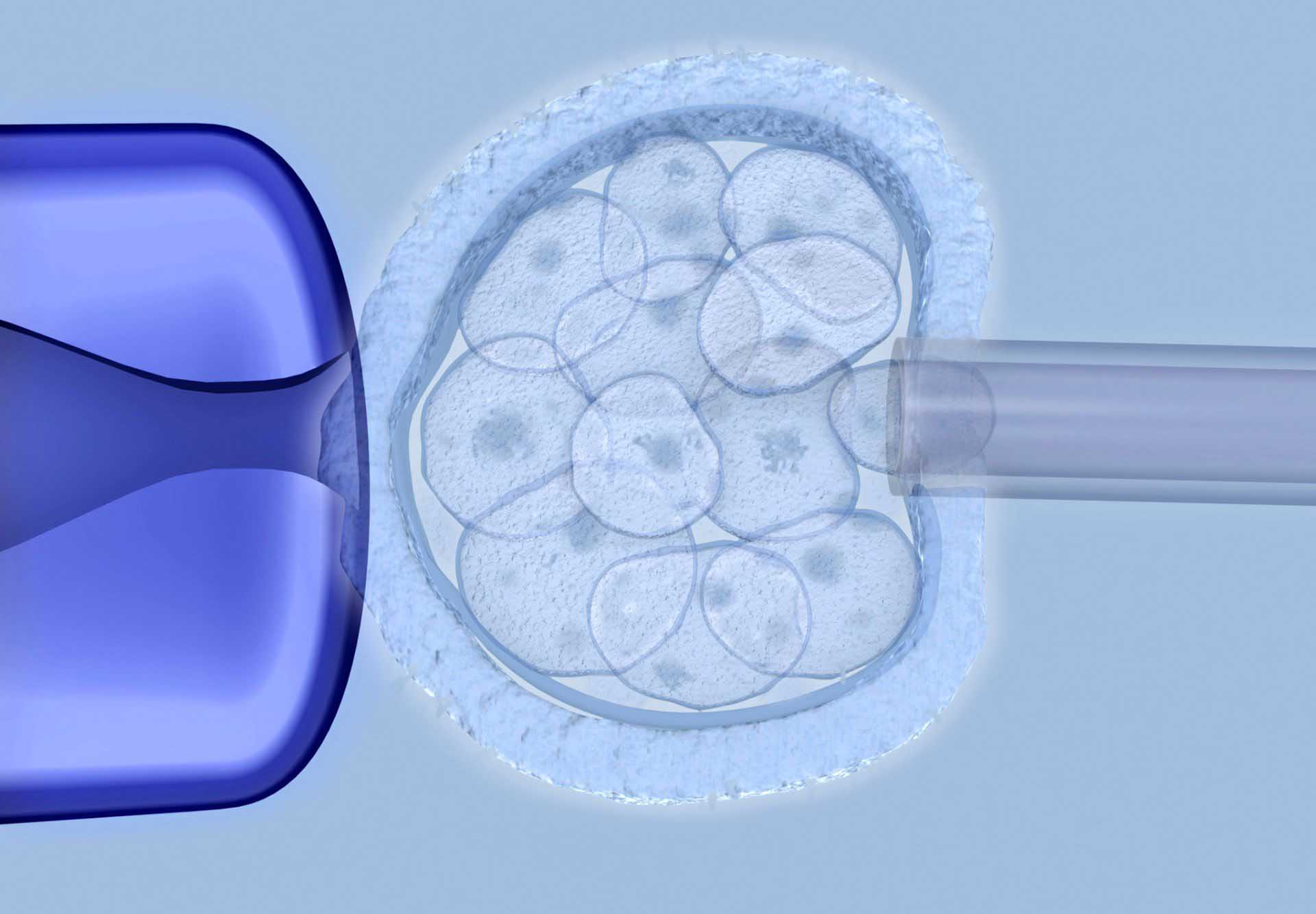In this article, find out the reasons why so few embryos develop after an IVF and what you can do to safeguard your mental health.
The success rate of IVF is comparable to that of a natural cycle in couples with no reproductive concerns; a study of about 156,000 women reported an average live-birth rate for the first cycle of 29.5%.
Many factors are at play when in vitro fertilization (IVF) fails. Embryos created by in vitro fertilization (IVF) sometimes don’t make it, and a new study may have revealed why.
According to the findings, chromosomal defects halt embryonic development during the first stages of cell division. And this, according to common belief, happens far later in the process.
Within twenty-four hours of fertilization, cell division begins in the fertilized egg. This results in two “daughter cells” from the original cell. Before this happens, a fertilized egg produces two copies of the whole human genome, which comprises 46 chromosomes. Hence, each daughter cell receives a complete set of 46 chromosomes.
Why Embryos Don’t Thrive After IVF
Incorrect chromosomal distribution is a known issue with IVF. Before this study, researchers assumed that problems with the microtubule spindle, an organelle responsible for the crucial process of cell division, were to blame. The experts from Columbia University determined that the root of the issue lies considerably deeper in the system. Spindle failure can be traced back to a defect in the duplication process. This has been largely ignored in prior research.
The reason why the duplicating process does not proceed smoothly is unknown at this time. One possible explanation is that the DNA sequence itself is flawed. The same team at Columbia University plans more research on this topic. Meanwhile, science is closer to knowing why IVF isn’t successful, which may be useful to people who choose to go that path.
Human embryo development is notoriously inefficient, and this is ultimately attributable to issues with the quality of the egg.
The number of viable, chromosomally normal eggs in a woman’s ovaries is what is meant by the term “egg quality” when discussing fertility treatment options with a reproductive specialist. We call these eggs “viable” because they can develop into a baby. To have any chance of developing into an embryo, these single cells must survive for decades, as women are born with their complete complement of eggs and do not produce additional eggs during their lives.
In women under 35, over 70% of eggs are free of genetic abnormalities. About 40% of eggs produced by women aged 37 are considered to be chromosomally normal. The percentage of chromosomally normal eggs in a woman’s ovaries decreases steadily with age, from around 25% at age 40 to about 5% at age 45.
Eggs with a chromosome count that is too high or low can still be fertilized, but the resulting embryo will have a chromosomal count that is outside of the normal range. It is common for pregnancies to end when an embryo has an incorrect number of chromosomes since many of these embryos do not implant. If the embryo implants well but then fails to grow, the pregnancy could result in a miscarriage.
This research is expanding our knowledge of what causes chromosomal damage in eggs.
Implications for In Vitro Fertilization Patients
For a variety of reasons, IVF treatment can be a very difficult experience. Getting pregnant can be physically taxing, requiring shots and a slew of pricey medications on top of daily early-morning lab and ultrasound sessions to check on follicle development, etc.
The majority of couples require more than one round of IVF before conceiving, and every month of unsuccessful treatment adds emotional distress. Also, it’s natural that IVF would induce a great deal of stress if only a small fraction of embryos survive until day 5; then, if none of them work, would you be willing to try again?
The stress of IVF is ultimately attributable to the fact that so much of the process is out of one’s hands. During an IVF cycle, we have no say over which eggs develop. Each woman has both viable and nonviable eggs, and we can’t do anything to help the former develop while discouraging the latter.
Depending on a woman’s age, ovarian reserve, and infertility diagnosis, each IVF round has a different probability of success. Pregnancy on the first try is a possibility for some women. Others may need to try several cycles before they find one that works. Women undergoing fertility therapy are under great stress because they have so little say in the situation and can’t predict the outcome.
It’s worth noting that it will be quite some time before chromosomal abnormalities in eggs can be routinely treated in clinical practice. There is currently no technology or treatments available that can counteract the natural decline in egg quality that occurs with age.
Because of the emotional and physical strains associated with IVF, it’s crucial to take measures to safeguard your mental health.
Articles you might like: What You Should Know About Monkeypox and Pregnancy, Understanding Deltacron as a Parent, Will Covid-19 Vaccination Be Safe For Infants?

